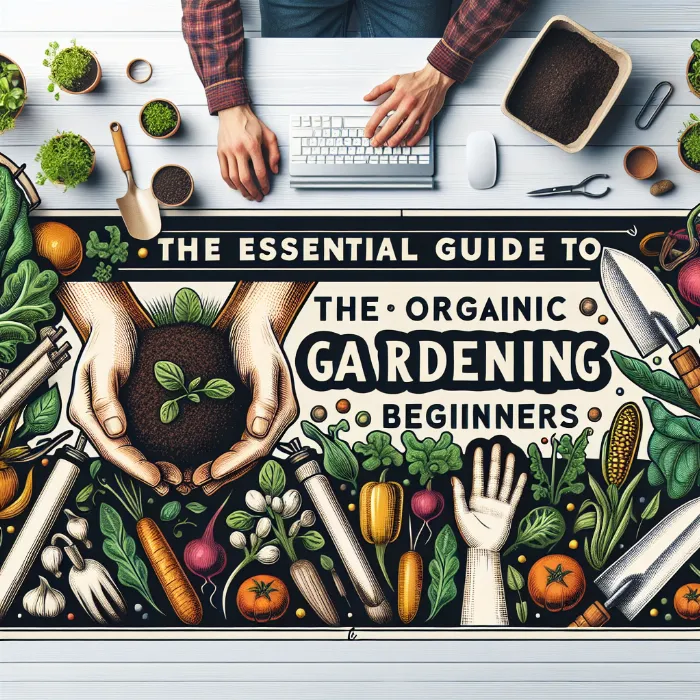Discover the fundamentals of organic gardening with this comprehensive guide tailored for beginners. Learn sustainable practices to cultivate your green space effectively.
The Essential Guide to Organic Gardening for Beginners
Entering the world of gardening can be a revitalizing experience, particularly when you choose the path of organic gardening. This method focuses on working with nature to produce lush, healthy gardens without relying on chemical fertilizers, pesticides, or genetically modified organisms.
Understanding Organic Gardening
Organic gardening emphasizes the use of natural resources, promoting ecological balance and conserving biodiversity. It goes beyond merely avoiding chemicals; it involves techniques like composting, choosing the right plant varieties, and fostering soil health to create a sustainable outdoor space.
Getting Started with Organic Gardening
Begin your gardening journey with the following steps:
- Soil Preparation: Healthy soil is the foundation of a successful garden. Start by enriching your soil with organic compost and performing a soil test to understand nutrient needs.
- Choosing Plants: Select plants that are appropriate for your climate zone and soil type. Consider native plants as they are better adapted to local conditions and require less water and care.
- Water Management: Efficient water use is crucial. Implement watering practices such as drip irrigation and mulching to minimize evaporation and runoff.
- Pest Management: Avoid synthetic pesticides by utilizing natural predators like ladybugs or using barriers such as row covers to protect plants.
For a detailed guide on the best practices, visit Organic Gardening for Beginners.
Benefits of Organic Gardening
Engaging in organic gardening offers numerous benefits:
- Environmental Protection: Reduces pollution and conserves water, promoting a healthier ecosystem.
- Healthier Food: Produces nutrient-rich produce free from harmful chemicals.
- Enhanced Biodiversity: Supports a wide range of wildlife by providing various habitats and food sources.
Expert Insights
According to Dr. Linda Chalker-Scott, an Associate Professor at the University of Washington, "Organic gardening mirrors natural ecosystems in terms of resource cycling and promotes both plant and animal diversity." Her research supports the effectiveness of organic practices in creating robust garden ecosystems.
Conclusion
Organic gardening is not just a hobby but a step towards sustainable living. By adopting organic practices, beginners can contribute to environmental health while enjoying the fruits of their labor. It is a rewarding journey that benefits both the gardener and the planet. Start your organic gardening adventure today and witness the transformation in your garden and your well-being.

















Comments 0